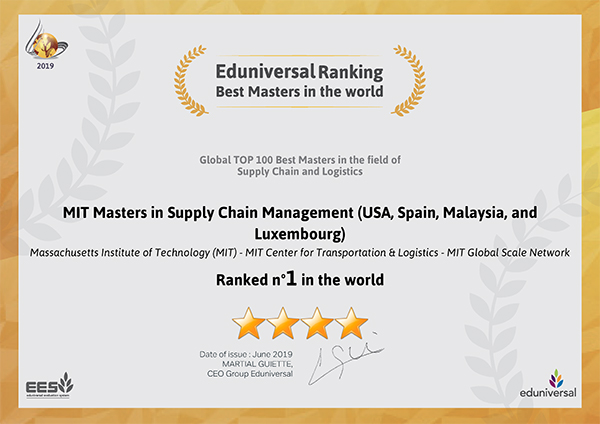
A generalist manages a range of HR tasks. This includes balancing the needs and wants of employees with those of the company. They must also keep up to date with the latest HR regulations. It isn't easy, however. We will be looking at the essential aspects of the job and the requirements for anyone interested in this career. We'll also look at salary and education requirements, and offer a few career path ideas for those looking to enter the field.
Job description
Your work day as an HR Generalist can vary from one industry to the next. It will depend on the season and the place. Your typical day will begin with a cup of coffee, and then you will start your daily to-do list. You might be required to coordinate employee benefits changes, attend meetings or write documents. You might also be responsible to employee orientation.
A Generalist also has the responsibility of managing performance appraisals. These are regular events in which the HR professional meets with the manager to assess an employee's performance. This is a shared responsibility for HR and the company. These evaluations will influence many key decisions about employees' futures. Specialists are available for larger organizations. But HR Generalists should be knowledgeable about the business functions involved in managing performance appraisals.

Education requirements
It is possible to have different education requirements depending on your company and industry. Employers are also looking for work experience. In addition to HR experience, candidates should be aware that many fields of study offer transferable skills. It may prove beneficial to have an MBA in human resources or a Master's Degree in accounting or finance if you have a background in these areas.
As Human Resources Generalists, they are expected be analytical and to have an understanding of key HR metrics. Oftentimes, they may need to train other employees on new systems. They should also be comfortable with digital tools. This includes pre-assessment technology and recruitment technology. They should also be skilled in online collaboration and communication platforms. This will enable them to be effective advisors to their clients. Furthermore, an HR Generalist must have the ability handle confidential information.
Salary
The salary of a generalist in Human Resources varies depending upon where you are located and the industry. They oversee the day to-day operations and management of human resources offices. They manage employee evaluations, and create and implement HR policies. They must be multi-taskers who can handle multiple projects at once. This includes managing and maintaining an organization's activities as well as hiring, firing, and managing employees. This makes them essential to all businesses, even small ones.
A Bachelor's degree in human resource management or another related field is required for HR generalists. They also need some experience. Many generalists also complete internships, which give them a feel for the job and the duties. The salary for HR generalists varies depending on the industry and the responsibility. The salary for generalist HR is lower for those who have a bachelor's or higher degree than those who have more experience. Generalists in HR need to have at minimum two years' experience to get a good wage.

Career path
Generalists in human resources (HR), offer a wider range of experience. The HR generalist role allows you to choose a variety of responsibilities within the HR department and is a more flexible position than a specialist. The generalist role can be used in many areas of human resources. However, they may also have the opportunity to advance to a more senior position such as human resources director by specializing in one area. You must be organized and able to multi-task to be an HR generalist.
A generalist job in HR may be for you if you are interested in this field. Generalists are required to be in close contact with employees and will be responsible for a wide range of tasks. For larger companies, a team may be needed to solve specific problems and give more personal attention to employees. While it's likely that you'll work in an office environment, a generalist position may also allow you to enjoy the jet set life. You will be traveling a lot to meet candidates and go to job fairs.
FAQ
What is the difference in a project and program?
A program is permanent, whereas a project is temporary.
A project is usually defined by a clear goal and a set deadline.
It is often performed by a team of people, who report back on someone else.
A program often has a set goals and objectives.
It is usually done by one person.
What are management concepts?
Management concepts are the principles and practices used by managers to manage people, resources. They include such topics as human resource policies, job descriptions, performance evaluations, training programs, employee motivation, compensation systems, organizational structure, and many others.
What role can a manager fill in a company’s management?
Different industries have different roles for managers.
A manager generally manages the day to-day operations in a company.
He/she will ensure that the company fulfills its financial obligations.
He/she is responsible for ensuring that employees comply with all regulations and follow quality standards.
He/she plans and oversees marketing campaigns.
Statistics
- Our program is 100% engineered for your success. (online.uc.edu)
- The average salary for financial advisors in 2021 is around $60,000 per year, with the top 10% of the profession making more than $111,000 per year. (wgu.edu)
- 100% of the courses are offered online, and no campus visits are required — a big time-saver for you. (online.uc.edu)
- As of 2020, personal bankers or tellers make an average of $32,620 per year, according to the BLS. (wgu.edu)
- Hire the top business lawyers and save up to 60% on legal fees (upcounsel.com)
External Links
How To
How do I get my Six Sigma license?
Six Sigma is a tool for quality management to improve processes and increase efficiency. Six Sigma is a method that helps companies get consistent results from their operations. Named after the Greek word for "sigmas", the name refers to the first two letters. This process was developed at Motorola in 1986. Motorola realized that it was important to standardize manufacturing processes so they could produce products quicker and cheaper. They had been having problems with consistency because of the many different people who were doing the work. They decided to use statistical tools like control charts and Pareto analysis to solve the problem. These techniques would be applied to every aspect of the operation. This technique would enable them to make improvements in areas that needed it. When you are trying to obtain your Six Sigma certification, there are three steps. First, you need to determine if your qualifications are valid. You will need classes to pass before you can begin taking tests. Once you pass those classes, the test will begin. It is important to review everything that you have learned in class. After that, you can take the test. If you pass, then you will become certified. Final, your certifications can be added to you resume.